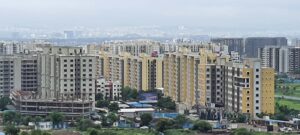Pune: Rising Temperatures Prompt Surge in Heat Stroke Cases Across Maharashtra

Pune, 9th May 2024: With the summer heat gripping the state with increasing intensity, the incidence of heat-related illnesses, particularly heat strokes, has begun to surge. As of the latest reports, a total of 202 heat stroke patients have been recorded across Maharashtra this summer season.
Nashik district leads the tally with the highest number of cases, reporting 23 patients thus far. Following closely behind, Buldhana has reported 21 cases, while Jalna and Dhule each have recorded 20 cases. Solapur and Sindhudurg have reported 18 and 10 cases respectively. Despite the rising numbers, no fatalities due to heatstroke have been reported in the state this year. However, health officials remain vigilant, especially considering the toll taken by heat-related illnesses in previous years.
The period from March 1 to May 5 saw the highest surge in reported cases, prompting concerns among health authorities. Last year, between March 1 and July 31, a total of 22 fatalities were attributed to heatstroke, with the Chhatrapati Sambhajinagar (Aurangabad) district recording the highest number of deaths at 13.
Responding to the escalating situation, the state health department has issued directives to all district health officers, district surgeons, and municipal medical officers to undertake preventive measures. Hospitals and health systems have been urged to proactively plan treatment strategies for heat-related illnesses and ensure an adequate supply of medications to address the anticipated rise in patient admissions.
Heatstroke, characterized by a sudden increase in body temperature, can lead to various symptoms including red spots on the body, swelling of extremities, muscle pain, dizziness, and in severe cases, organ dysfunction. It poses a significant risk to individuals, particularly those with pre-existing health conditions such as heart, respiratory, and kidney diseases.
As the mercury continues to rise, authorities emphasize the importance of preventive measures and prompt medical attention to mitigate the impact of heat-related illnesses and safeguard public health during the summer months.





